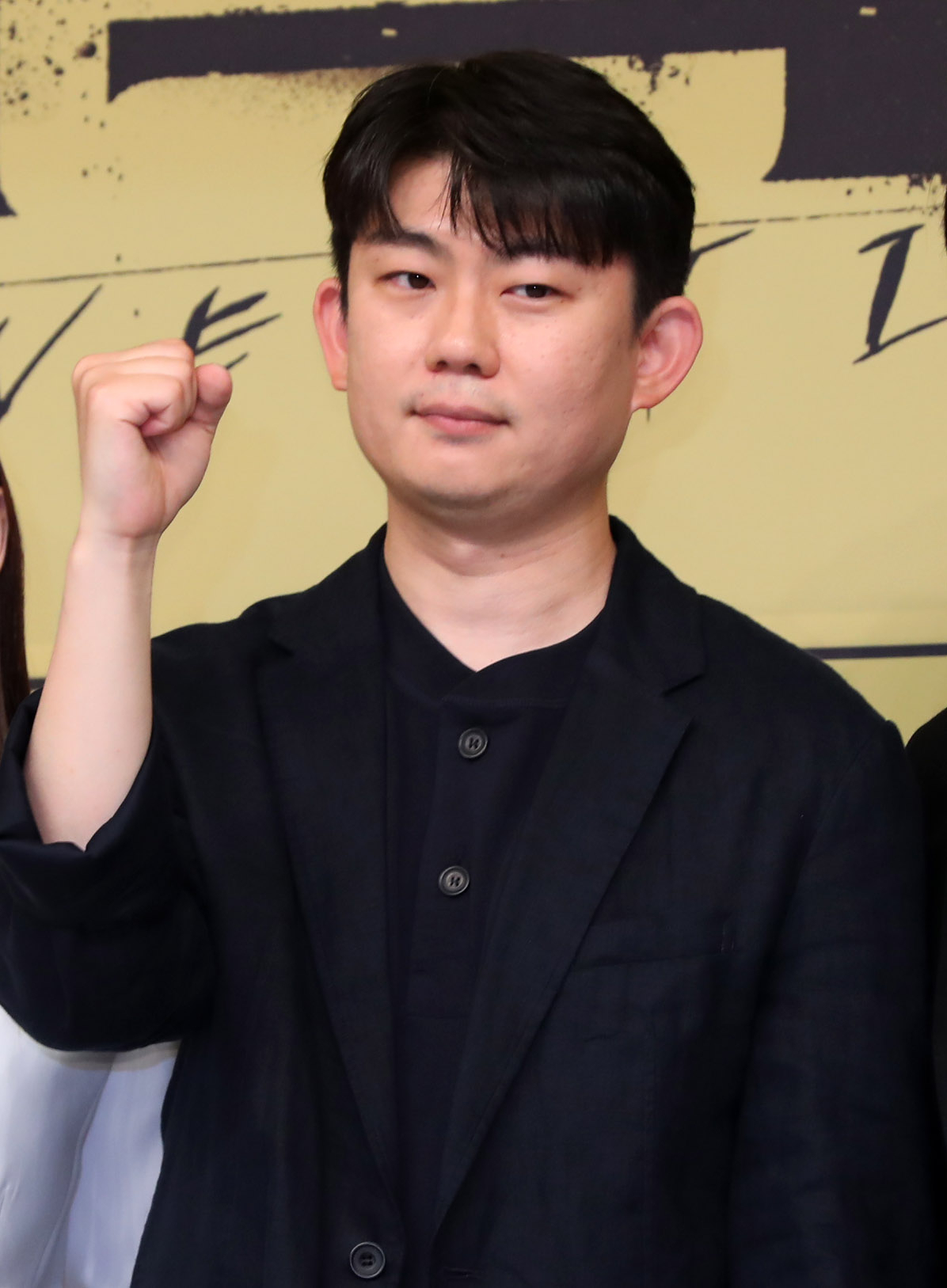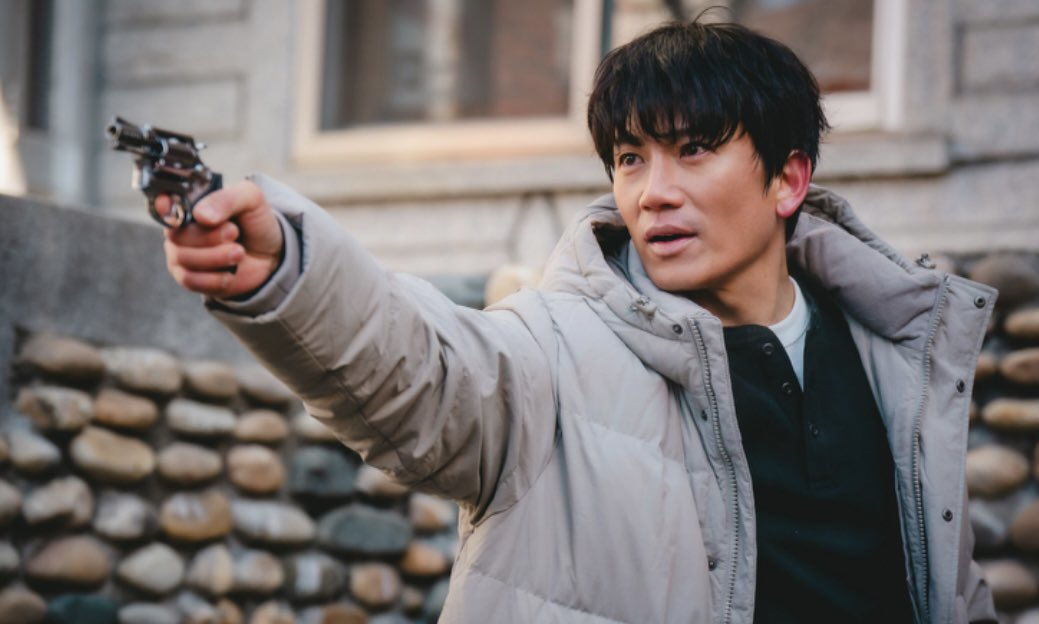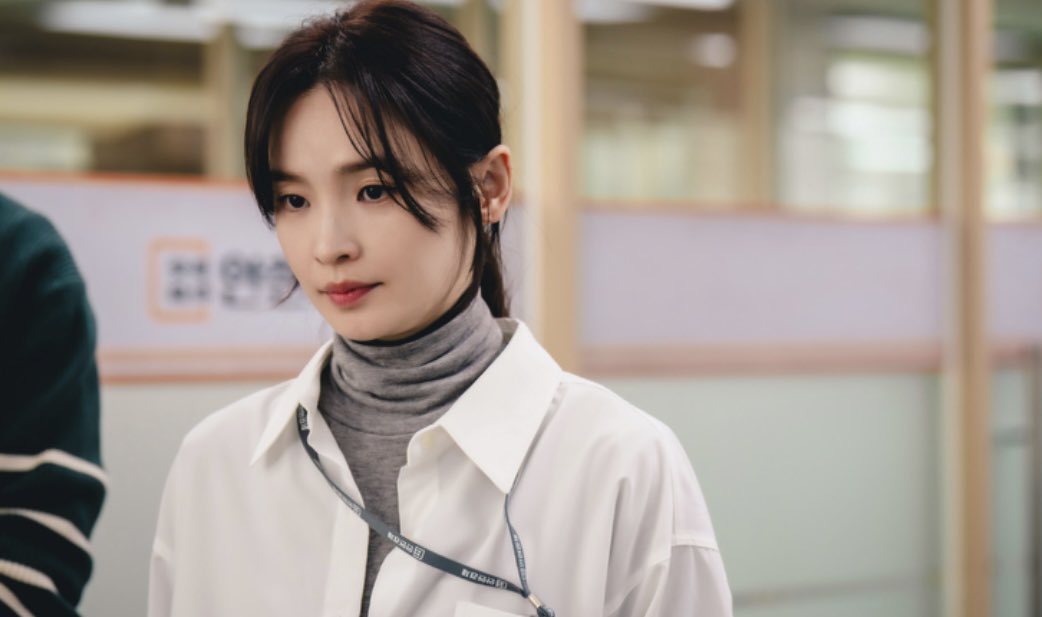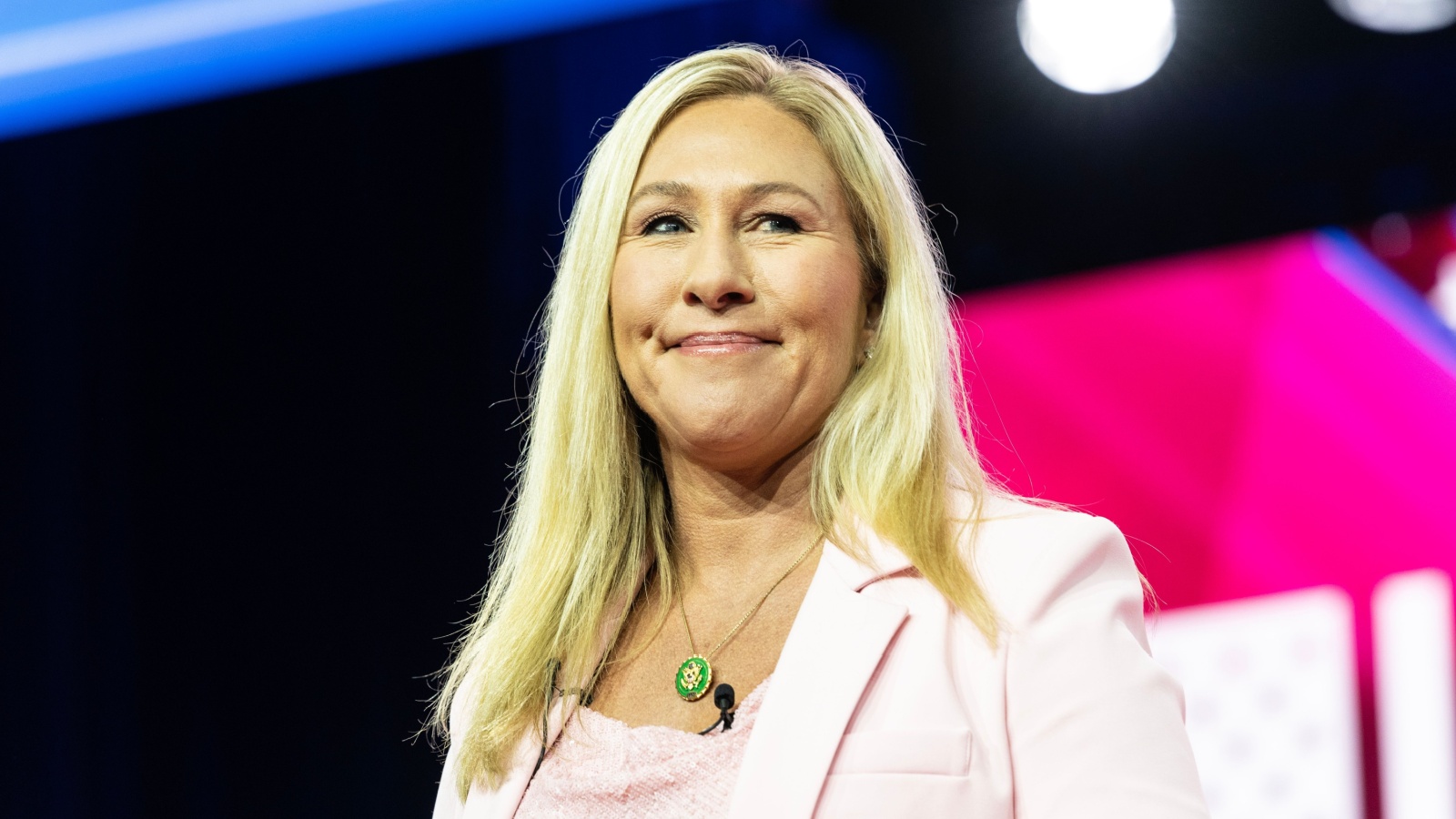(Herald interview) Director of SBS hit series “Connection” says portraying drugs on TV was difficult

Kim Mun-kyo, director of “Connection,” poses for a photo during a press conference in Yangcheon-gu, Seoul, on May 24. (Newsis)
The director of the hit SBS series “Connection” said that although he felt burdened by the responsibility that comes with broadcasting a television series about drugs, he wanted to break new ground with the series.
“Connection” is a 14-part crime series that centers on Jang Jae-kyung (played by Ji Sung), a detective specializing in the arrest of drug criminals who falls into the clutches of an unknown perpetrator and becomes a drug addict himself.
“Connection” is the third most-watched SBS series broadcast on Fridays and Saturdays in 2023-2024. The last episode on Saturday achieved a viewing rate of 14.2 percent.
Currently ahead of it are “Taxi Driver 2” with a 21 percent audience share and “Dr. Romantic 3”, whose last episode in June achieved a nationwide audience share of 16.8 percent.
Screenwriter Lee said her main goal with “Connection” was to portray the complex dimensions of friendship.
“The core message of ‘Connection’ is the complexity and value of friendship,” Lee said in a recent written interview.
“Friendship is a unique bond that lies somewhere between strangers and family ties. I wanted to express how difficult it is for people to maintain this fragile and often shaky concept called ‘friendship’ without self-interest or ulterior motives, and therefore how valuable friendship really is,” Lee said.

Ji Sung plays the lead role in “Connection.” (SBS)
Director Kim said that filming “Connection” was challenging, with one of the biggest difficulties being how to cover sensitive topics like drugs on television while also taking responsibility for the social impact.
“I had two concerns when filming ‘Connection,'” Kim said. “One was about the intention and message that ‘Connection’ was supposed to convey to the audience. Since this drama was being shown on television, which has the widest reach of all media, there was concern that the content would stay within the boundaries of societal morality.”
“I proceeded with caution to avoid arousing curiosity about drugs or reducing aversion to them. Therefore, I carefully considered taking and maintaining a definitive stance on drugs in the series, treating the subject in such a way that drugs remain an unknown substance until the end, and ensuring that no curiosity about drugs is aroused,” he said.
“Another concern was the level of explicitness in depicting drugs – how much of it should be shown to capture the audience’s attention without creating aversion?” Kim added.
“To reinforce the protagonist’s challenges and raise awareness about drugs, we recognized the need for (drug) scenes that were somewhat uncomfortable (to watch). To effectively control the impact, the actors played different versions of their roles, always choosing each portrayal with consideration and care,” said Kim.
But despite the challenges it brought, Kim stressed that it never occurred to him to remove the drug theme from “Connection.”
“The impact of the drug theme had a big influence on my decision to direct. The premise of ‘a drug agent becomes addicted to drugs’ had a strong appeal and I was curious as a director to explore new territory,” he said.
“At the same time, given the severity of the drug problem in Korea, I believe it is time to broadcast such issues on television,” he added.

Jeon Mi-do plays the lead role in “Connection”.



